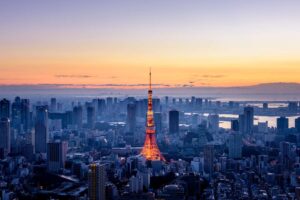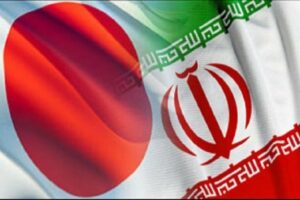World leaders at G7 meetings ready to pile fresh sanctions on Russia

Hiroshima, The Gulf Observer: Leaders of the world’s most powerful democracies are devoting much of the first full day of the Group of Seven summit to finding new ways to punish Russia for its 15-month invasion of Ukraine.
Russian President Vladimir Putin’s nuclear threats against Ukraine, along with North Korea’s months-long barrage of missile tests and China’s rapidly expanding nuclear arsenal, have resonated with Japan’s push to make nuclear disarmament a major part of the summit. World leaders Friday visited a peace park dedicated to the tens of thousands who died in the world’s first wartime atomic bomb detonation.
After group photos near the city’s iconic bombed-out dome, a wreath-laying and a symbolic tree planting, a new round of sanctions were to be unveiled against Moscow, with a focus on redoubling efforts to enforce existing sanctions meant to stifle Russia’s war effort and hold accountable those behind it, a U.S. official said. Russia is now the most-sanctioned country in the world, but there are questions about the effectiveness of the financial penalties.
The U.S. official, speaking on the condition of anonymity to preview the announcement, said the U.S. component of the actions would blacklist about 70 Russian and third-country entities involved in Russia’s defense production, and sanction more than 300 individuals, entities, aircraft and vessels.
The official added that the other G7 nations would undertake similar steps to further isolate Russia and to undermine its ability to wage war in Ukraine. Details were to emerge over the course of the weekend summit.
The European Union was focused on closing the door on loopholes and plans to restrict trade in Russian diamonds, Charles Michel, president of the European Council, told reporters early Friday.
He said the G7 would also try to convey to leaders of countries that are non-member guests at the summit why it’s so important to enforce sanctions.
Japanese Prime Minister Fumio Kishida, who represents Hiroshima in parliament, wants nuclear disarmament to be a major focus of discussions, and he formally started the summit at Hiroshima’s Peace Memorial Park. The visit by world leaders to a park dedicated to preserving reminders of Aug. 6, 1945, when a U.S. B-29 dropped an atomic bomb over Hiroshima, provided a striking backdrop to the start the summit. An estimated 140,000 people were killed in the attack, and a fast-dwindling number of now-elderly survivors have ensured that Hiroshima has become synonymous with anti-nuclear peace efforts.
“Honestly, I have big doubts if Mr. Kishida, who is pursuing a military buildup and seeking to revise the pacifist constitution, can really discuss nuclear disarmament,” Sueichi Kido, a 83-year-old “hibakusha” or survivor of the Nagasaki explosion, told The Associated Press. “But because they are meeting in Hiroshima I do have a sliver of hope that they will have positive talks and make a tiny step toward nuclear disarmament.”
On Thursday night, Kishida opened the global diplomacy with a sitdown with President Joe Biden after Biden’s arrival at a nearby military base. Kishida also held talks with British Prime Minister Rishi Sunak before the three-day gathering of leaders opens.
The Japan-U.S. alliance is the “very foundation of peace and security in the Indo-Pacific region,” Kishida told Biden in opening remarks. Japan, facing threats from authoritarian Russia and North Korea, has been expanding its military but also relies on 50,000 U.S. troops stationed in Japan and U.S. military might.
“We very much welcome that the cooperation has evolved in leaps and bounds,” Kishida said.
Biden, who greeted U.S. and Japanese troops at nearby Marine Corps Air Station Iwakuni before his meeting with Kishida, said: “When our countries stand together, we stand stronger, and I believe the whole world is safer when we do.”


